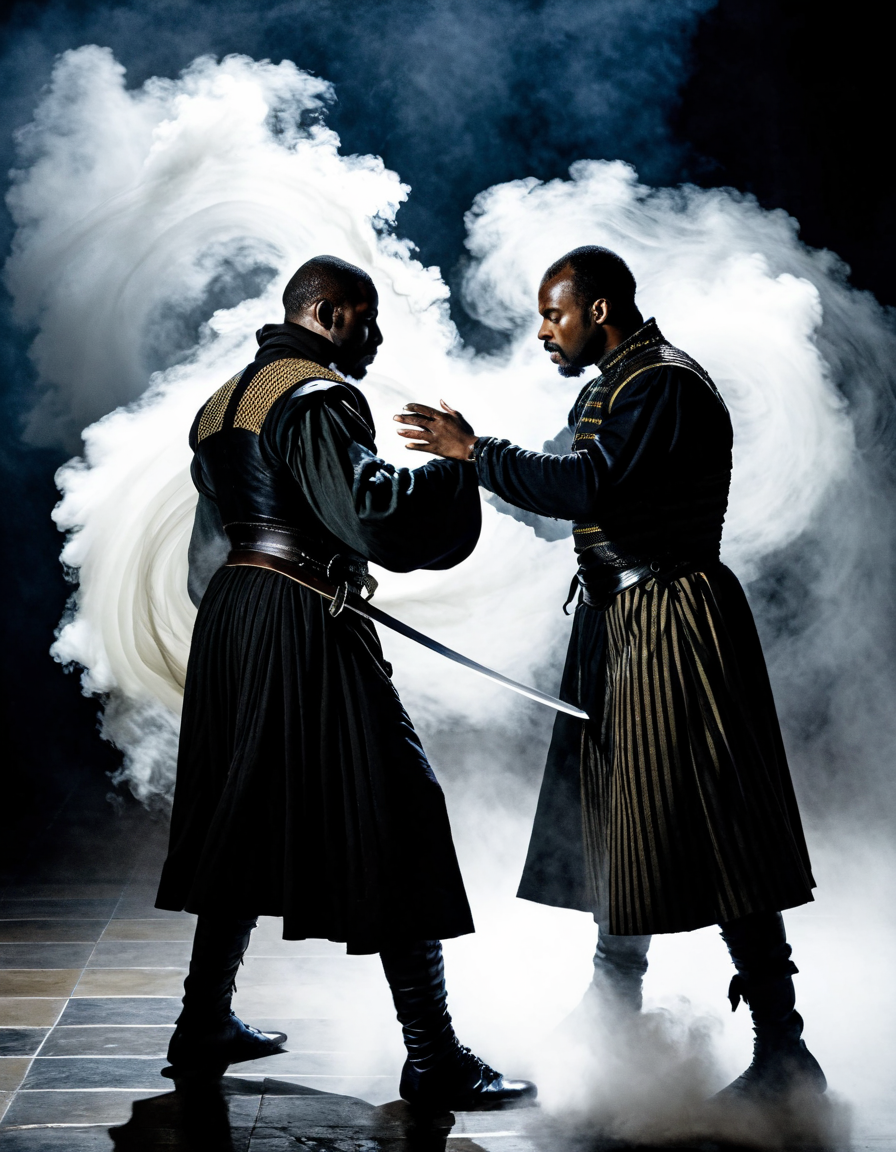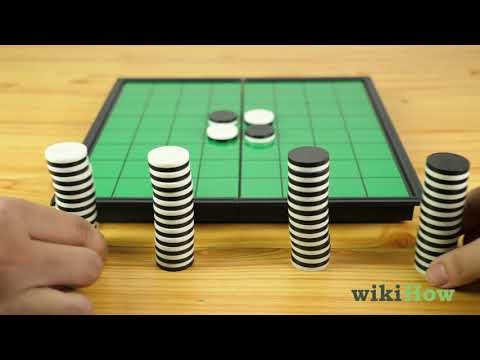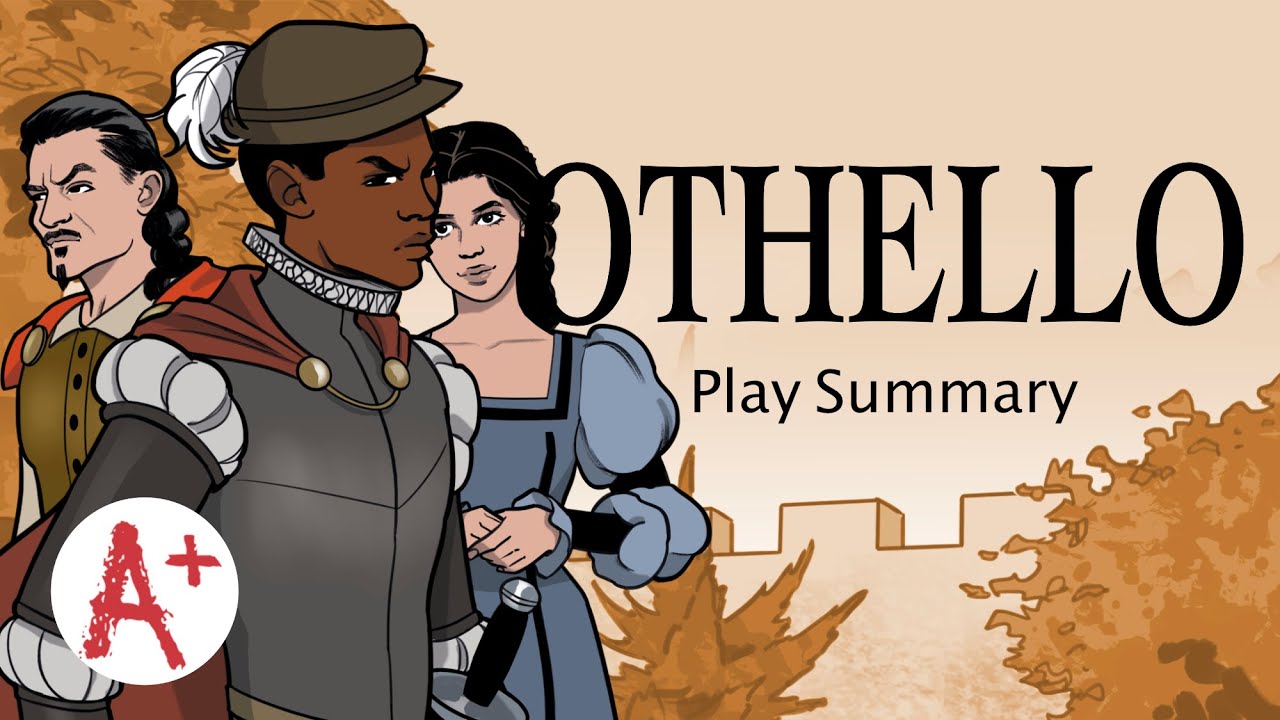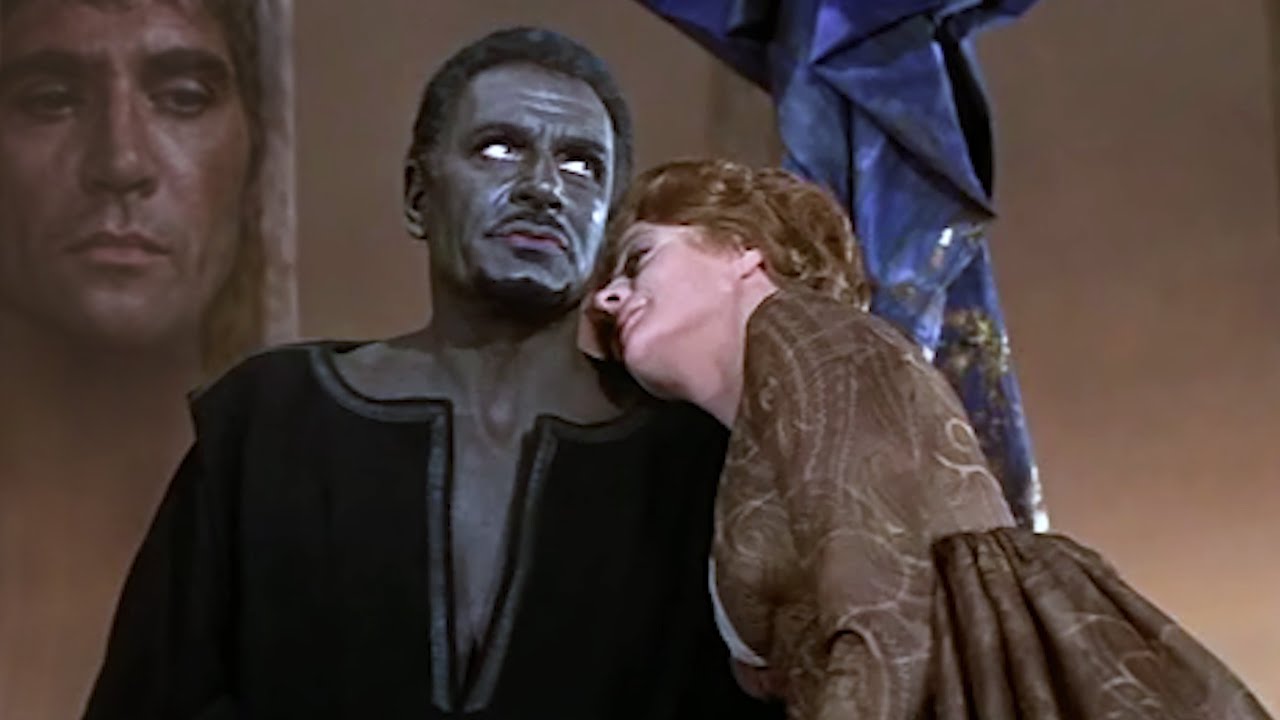Shakespeare’s Othello stands tall as one of the pinnacles of tragic literature. This timeless tale uncovers profound insights into jealousy and betrayal through the spiraling downfall of its protagonist, Othello. As we explore the intricate layers of Othello’s character, we can’t help but draw parallels with other iconic works like Romeo and Juliet (1996). Just as the passionate romance of Romeo and Juliet captures our hearts, Othello’s tragic journey highlights the darker sides of love—jealousy, suspicion, and betrayal. So grab your popcorn, and let’s dive deep into this Shakespearean classic!
The Seven Stages of Othello’s Jealous Descent

1. The Glory of Love
In the beginning, Othello is the noble warrior, celebrated for his love for Desdemona. His devotion stands in stark contrast to the impulsive love seen in Romeo and Juliet. Othello exudes confidence; he believes his love is pure and invincible, representing the critical first stage of his emotional journey. But, as we all know from countless rom-coms and dramas, love can quickly flip from fairytale bliss to a nightmare of doubt.
2. Seeds of Doubt
Enter Iago, the master manipulator, whose whispers plant seeds of insecurity in Othello’s heart. Much like the societal pressures faced by Romeo, Iago’s sly suggestions that Desdemona is unfaithful start to gnaw away at Othello’s confidence. This moment highlights how fragile trust can be in any relationship. It’s a classic case of how weak foundations, much like those of a toddler learning to walk, can yield catastrophic consequences in matters of the heart.
3. The Poison of Manipulation
Othello’s blind trust in Iago serves as a chilling reminder of betrayal. Shakespeare builds tension so brilliantly; it echoes the disillusionment seen in Romeo and Juliet. The web of loyalty becomes increasingly tangled, emphasizing the deception that can fester in the hearts of friends. Iago’s manipulation illustrates how love can easily morph into a weapon, leaving destruction in its wake.
4. Isolation and Alienation
Othello’s descent into jealousy leads him to isolate himself from those who care for him, including Desdemona. This gradual withdrawal mirrors the estrangements of our beloved star-crossed lovers, Romeo and Juliet. Here, the audience observes how jealousy distorts Othello’s perception, creating misunderstandings and fracture lines in his closest relationships. It’s heartbreaking to witness a hero turn into a lonely figure consumed by doubt.
5. The Crescendo of Jealousy
Othello’s changing character marks a pivotal transformation. Jealousy grips him tightly, twisting his love into rage. As he spirals down this emotional rabbit hole, we see a striking contrast to Juliet’s evolution from an innocent girl to a decisive young woman in Romeo and Juliet. Love has become a double-edged sword for Othello, demonstrating just how easy it is to fuel destructive emotions from a once-pure passion.
6. Confrontation and Realization
One of the most heart-wrenching moments arrives when Othello confronts Desdemona, driven mad by his distorted beliefs. This tragic irony emphasizes love devoid of trust, a theme that resonates deeply throughout both narratives. Othello’s realization comes too late, echoing the rush to judgment we see in Romeo’s final moments in the tomb, where miscommunication results in irreversible consequences. Wow, Shakespeare really knows how to pull at our heartstrings!
7. The Tragic Denouement
In the final act, despair engulfs Othello as he grapples with the consequences of his actions. This heartbreaking resolution serves as a grim reminder of how unchecked emotions can spiral into chaos. Much like the heartrending fate of our beloved Romeo and Juliet, Othello’s tragic demise underscores the devastating effects of jealousy and misunderstanding. It leaves audiences with a lingering sense of loss—one we feel even decades after that fateful night.

The Complexity of Jealousy in Othello’s Story
Beyond its narrative motion, Othello offers profound insights into the human condition, focusing particularly on jealousy’s disruptive power. Unlike Romeo and Juliet, where love is often a unifying force, jealousy tragically disrupts Othello’s tale. This Shakespearean tragedy urges us to reflect on trust’s vulnerability and the catastrophic results that arise when suspicion overshadows love.
In both Othello and Romeo and Juliet (1996), Shakespeare, along with later adaptations, reveals the shadowy side of love—how easily it morphs into a weapon that drives apart those we hold dear. While Othello’s downfall stems from personal failings, the broader societal implications remain relevant today. They highlight timeless lessons that resonate with us in our relationships, addressing themes of loyalty, trust, and the destructive potential of jealousy.
What hits hardest is the invitation to consider our understanding of love in our lives. Are we navigating the fine line between affection and distrust as Othello did? Othello’s tragic journey is a reminder that jealousy can unravel even the most robust of bonds. So, the next time you’re watching a film or catching up on the Snl 50th Anniversary or laughing at We’re the Millers Cast shenanigans, ponder on how love plays out in your own story.
In cinema’s vast landscape, from our beloved Rocky Balboa to the intricacies of Sucker Punch, we see these themes mirrored. The burden of jealousy and misunderstanding is not just confined to Shakespeare’s words; it thrives across screens, waiting for us to understand and relate to its consequences. As we dissect characters like Othello, we also reflect on ourselves.
So let’s take a moment to appreciate the intricate tapestry that Othello’s story weaves around our understanding of love, loyalty, and the devastating effects of jealousy. It’s a tale as old as time but one that feels perpetually fresh, relevant, and undeniably heartbreaking.
Othello: The Tragic Hero’s Descent Into Jealousy
The Twists of Fate in Othello’s Tale
“Othello” isn’t just a story of love and betrayal; it’s packed with rich details that reveal the labor behind its creation. Did you know that this tragic tale showcases some of Shakespeare’s most powerful language? The play dives deep into themes of jealousy and manipulation, all revolving around Othello, a noble man whose rise and fall reflect the fragility of human emotion. Interestingly, the character of Othello has been interpreted by various actors, much like the ensemble in We’re the Millers, whose chemistry brought humor to an otherwise dramatic narrative.
Othello’s cultural background also adds layers to the play. Shakespeare’s portrayal of him as a Moor navigating societal prejudices resonates with many themes today, including the discussions around representation we see in news From Israel. This backstory serves as a pivotal factor in his eventual downfall, amplifying the tragic elements of jealousy when Iago twists Othello’s trust into a weapon. Amazing how historical contexts can effortlessly shape a narrative, isn’t it?
Othello’s Influence Beyond the Stage
The impact of Othello extends far beyond the stage. The character’s jealousy has even permeated pop culture, as seen in works that touch on emotional destruction, reflecting the sentiment in My husband Has destroyed me emotionally. This devastating theme finds echoes in various modern relationships, leading audiences to introspect on their own vulnerabilities, much like Othello’s tragic flaws.
Moreover, Othello’s character has graced the screen in various adaptations, capturing the imagination of actors, including Wayne Knight, who’s best known for his role in Seinfeld. Just imagine how his comedic timing could add a unique twist if he were to step into Othello’s emotional descent! Such diversity in portrayal opens up a conversation about the myriad takes on jealousy—something that’s not confined to Shakespeare’s time. It alludes to the enduring relevance of “Othello,” reminding us that the themes within it are just as timely today as they were centuries ago.
Whether you’re rummaging through Woodburn Outlets for a classic play on DVD or catching up on the latest interpretations of Shakespearean works, Othello stands the test of time, inviting exploration and understanding. So the next time you dive into Othello’s tragic arc, remember, there’s a lot more brewing beneath the surface!








